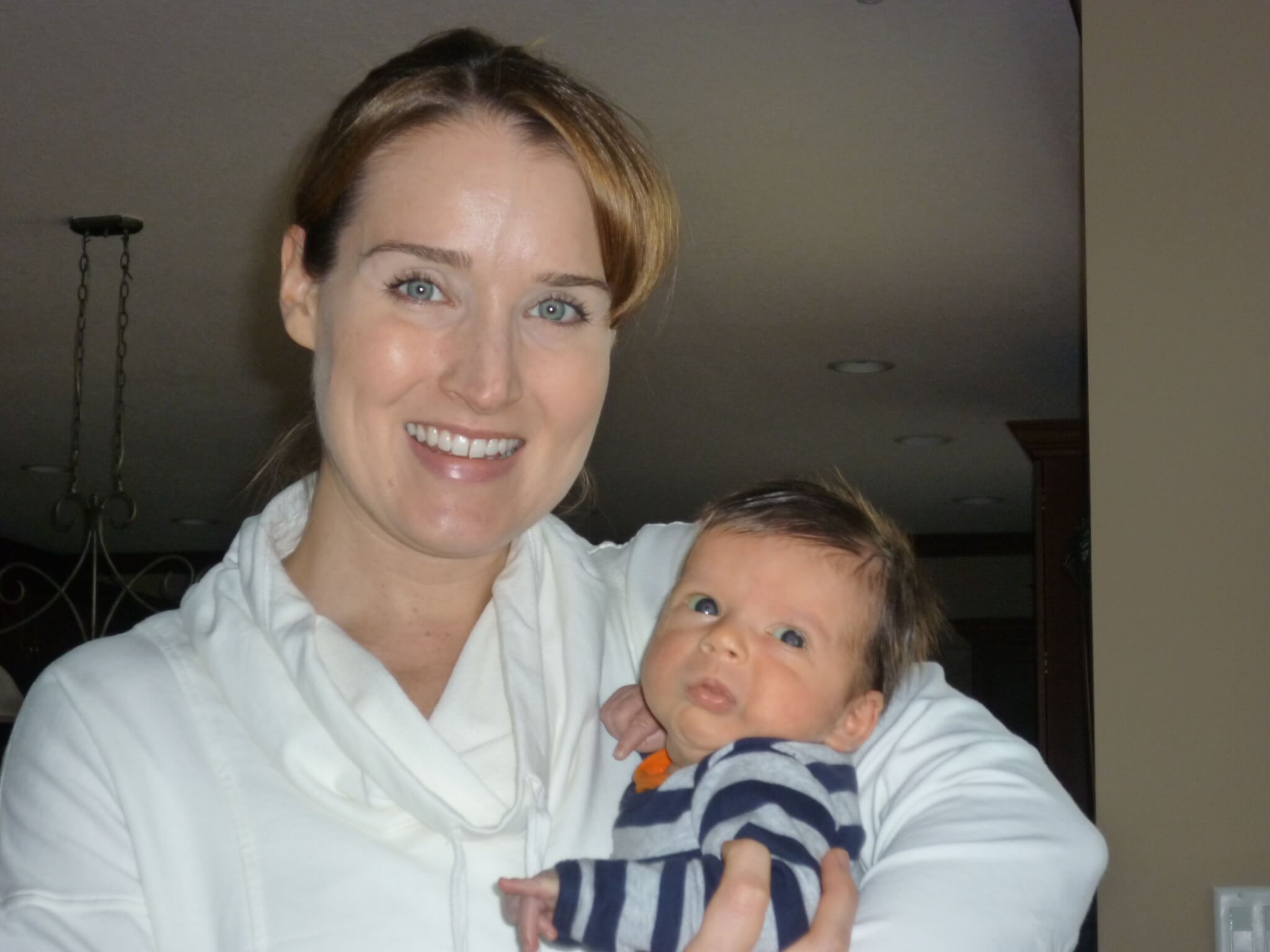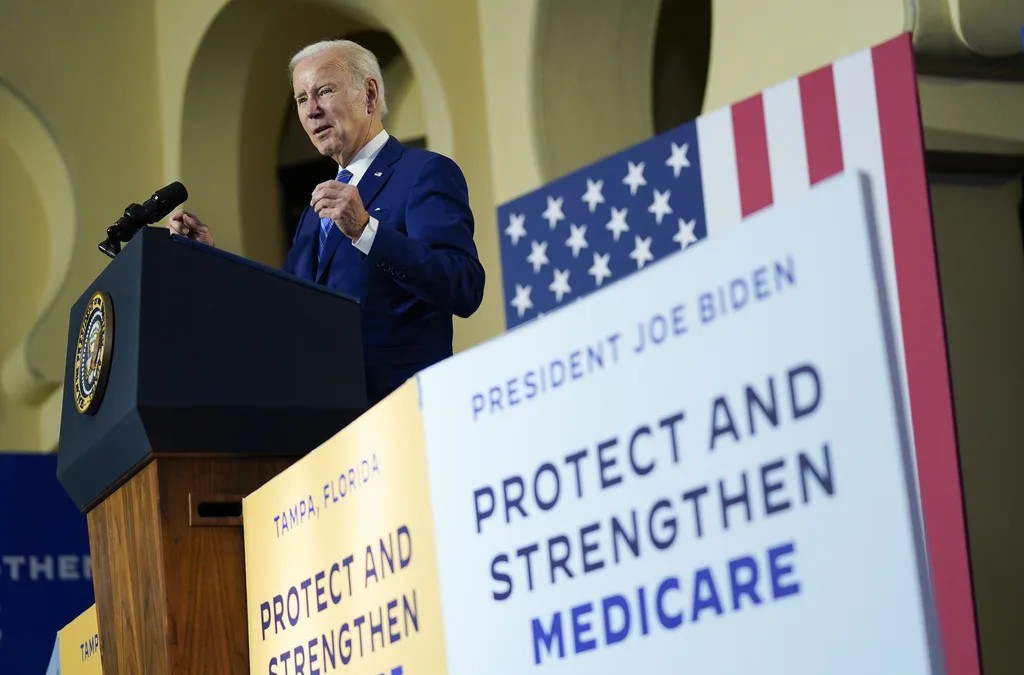
The United States loves to view itself as a world leader and pioneer in human rights issues. In reality, we are one of only three countries that do not provide some type of paid maternity leave, an issue that presidential candidate Hillary Clinton has made a centerpiece of her campaign. She released a video on Mother’s Day that calls for guaranteed paid family leave, and she has since addressed the issue with enthusiasm. “Women who want to work should be able to do so without worrying everyday about how they’re going to take care of their child or what will happen if a family member gets sick,” Clinton said July 17 at the Hall of Fame Dinner in Cedar Rapids, just one of many Iowa events that saw her promoting paid family leave.
If Clinton is elected President, it seems entirely likely that a Paid Family and Medical Leave Act would be one of her first priorities to pass through Congress. So it’s an important issue to take a closer look at during the Iowa Caucus season.
Support For Paid Leave Changes
“This family paid sick leave goes straight to the heart of family values, in my opinion,” said Jill June, a Clinton supporter and former CEO of Planned Parenthood of the Heartland. “She has lived her life exemplifying family values with great courage and grace.”
June said that Clinton’s role as a mother and grandmother give her excellent insight into the average family’s needs. She also notes that Clinton’s commitment to women and families stretches back years; June was a delegate at the 1995 Women’s Conference in Beijing, China, and recalls Clinton declaring that “women’s rights are human rights.”
Mike Falkstrom, head attorney at Planned Parenthood of the Heartland, was unable to speak about Clinton’s campaign (Planned Parenthood does not endorse candidates), but does support paid family leave because it empowers women and families. “We value the ability of women and men to be able to make decisions for themselves about their families,” Falkstrom said. “Being able to make those sorts of decisions for oneself really is a core part of human dignity.”
The only federal law offering leave for new parents or those with a sick loved one is the Family and Medical Leave Act of 1993, which was signed by President Bill Clinton. FMLA, as it is more commonly known, allows workers to take up to 12 weeks of unpaid leave without fear of losing their jobs. Iowa offers no unpaid or paid leave beyond this, so Hillary Clinton’s paid family leave plan would certainly make a difference in many Iowan family’s lives.
Helping New Parents
One woman who would love to see paid family leave become a national priority is Michelle Lange of Urbandale, who gave birth to her first son in October 2012. The lack of paid time off forced Lange to scramble for time with her new baby. She worked in the technology industry, and says she felt “lucky” that her company at the time offered her four weeks of paid leave. She also used up all four weeks of her vacation time and four weeks of FMLA unpaid leave.
Lange, however, would have liked more time, especially because her son was born five weeks early. When she returned to work, his adjusted age was only seven weeks. “It was really difficult to go back to work anyway because you have this little baby at home and you’re trying to balance being a new mother,” Lange said. “And because he was developmentally behind, I really felt like I needed more time.”
But Lange, like so many other Iowa parents, was forced to return to work because her family needed the money. “I really wish I could have taken more than 12 weeks, but considering that we had a newborn at home, and also my husband had a daughter going to a private college, we couldn’t afford to take any more than that.”
Lange’s situation is common for many families. In a 2014 survey, the Council of Economic Advisers said that over 60% of workers who took partially paid or unpaid family leave reported difficulties making ends meet. Often, this forces women to return to work before they are ready.
Nicole Smith of Grimes had her first child in June 2014, and she agrees that taking unpaid time off forced her family to tighten their budget. “You just had a baby, and they are expensive, and you have bills to pay, and you have food to buy,” Smith said. “It was definitely time to go back to work.”
Both Smith and Lange had flexible employers that offered generous vacation days and, in Lange’s case, four weeks of paid leave. Both women were able to plan to take some time off, even though some of it was unpaid. But for many Iowa families, forfeiting those wages is simply not an option.
“It is a struggle for a lot of people who are living paycheck to paycheck and who are teetering on the edge of poverty,” said Janet Petersen, the Iowa state senator for District 18. “Many unfortunately are in positions that don’t have paid sick days, paid time off, or the ability to take a maternity leave, so we need to be doing more to help support those families.”
Smith agrees that unpaid leave is not possible for many. “I have friends who went back as soon as the six weeks was over, not because they wanted to, but because they had to financially,” Smith said.
As with so many issues, the lack of access to paid leave disproportionately affects non-white Americans, who are almost twice as likely to have unmet needs for leave than white workers. The problem is especially poignant for Hispanics; only 43% of Hispanics taking part in the survey said they have access to paid leave, compared to 61% of African-Americans and 62% of white people surveyed.
When A Family Member Falls Ill
The problem also extends beyond leave for new mothers. Petersen, who recently endorsed Clinton’s run for office, said that her constituents often face a difficult decision when their child falls ill. “It can cost them their job,” Petersen said. “They have to choose between their job and their family, and that’s just not right.”
Jefferson resident Melissa Boldy found herself in that very position when her son was diagnosed with neuroblastoma cancer seven weeks after his birth in October 2012. Both she and her husband were unable to take paid time off from their respective jobs. “So here we are with a son with cancer, we’re in the hospital for over two weeks with no income,” Boldy said. “We relied on family and friends to help us get through that first month.”
A sick child can suddenly transform the life of a family. “I’ve always worked, always had a job,” Boldy said. “Money was never an issue. So going from that to absolutely nothing to fall back on was very difficult.”
Even buying food became a challenge. Boldy recalls struggling to pay for hospital food while simultaneously worrying about bills piling up at home. “It almost broke our family apart because of the stress it’s put on us financially, emotionally, everything,” Boldy said. “We fought a lot, we weren’t happy with anything, I don’t know, life was just upside down for us, we couldn’t see the light at the end of the tunnel.”
Boldy’s son is doing better today, although he is still not considered to have “no evidence of disease.” Boldy ultimately quit her job to care for her son, and said that paid medical leave would have helped her family through those challenging first months. “There are things you just can’t plan for,” Boldy said.
Building A Stronger Workforce
Even those without sick children find themselves in need of paid time off. “We have so many Iowans that are in the ‘Sandwich generation’ right now, where they have care-giving concerns not only for their own children, but for their parents,” Petersen said. “It’s a stressful time in their life, and the more things we can do to help families get through that successfully, the better off we’ll be in the workforce.”
Petersen’s mention of a stronger workforce rings of Hillary Clinton’s own words during the Hall of Fame dinner in Cedar Rapids. “We can’t afford to leave anyone on the sidelines,” Clinton said. “And women who want to work should be able to do so without worrying everyday about how they’re going to take care of their child or what will happen if a family member gets sick. That’s not a luxury; it’s a growth-strategy.”
Clinton sees these issues as a web. In her eyes, no one can work to their full potential when they are forced to make a choice between their family and their career. Yet many families are forced to just that because there is no federal law establishing paid family leave.
Other proponents of paid family and medical leave believe the policy would actually be a boon to businesses. “America is slow to come the realization that investing in human capital benefits of course the families that are directly impacted, but benefits businesses,” June said. “There are tremendous hidden costs that are burdening employers when there is high turnover or when they cannot attract the best and the brightest.”
June said that one of those hidden costs is training. Employers must start from scratch when competent employees are forced to leave their job to care for their family, and that can be expensive.
Implementing Paid Leave
And what about arguments that implementing paid family leave could harm women’s ability to get a job because executives know they might someday have to pay for maternity leave? “I think giving them protections isn’t going to hurt them, there’s already those issues faced by women,” Falkstrom said. “I would suspect that many of these individuals who are feigning that concern of some of the same individuals who balk when you suggest protecting women in other ways.”
Would it cost a little bit extra? Possibly (although businesses in California, which put paid family leave into effect statewide, report few downsides to the act). Would it help the economy? Probably (stress harms productivity, and as Petersen points out, “when you don’t provide adequate resources for people to have time to bond with their family, it impacts their ability to do good work”). Would it help a lot of people? Definitely.
Bernie Sanders has said that he support 12 weeks of paid family leave. Lincoln Chaffee said that he would support paid family leave on the national level like he did in Rhode Island, where he signed a plan into law as governor. Martin O’Malley is also in favor of paid family leave. As of yet, no Republican candidate has announced support for the idea. Hillary Clinton, though, is shining the most glaring light on the issue.
Of course, Clinton cannot do it alone, even if she does win the presidency. Iowans need to make sure they elect supporters of paid family leave into Congress. “She will hit the ground running, there’s no doubt about that,” June said of her favorite candidate. “She will take full advantage of her first 100 days in office, but she needs to have the cooperation of Congress in order to do that.”
Time will tell whether paid family and medical leave has gained enough traction to become a reality in the United States. Leaders like Clinton certainly seem willing to join the rest of the world in offering better support to families.
“It’s a breath of fresh air to have someone running for president who understands the needs that families face on a day-to-day basis and understands that when we help families, we help the economy, and we help our country,” Petersen said. “Hillary gets it.”
by Angela Ufheil
Posted 8/13/15
Politics

Biden cancels student loan debt for 2,690 more Iowans
The Biden administration on Friday announced its cancellation of an additional $7.4 billion in student debt for 277,000 borrowers, including 2,690...

The Republican war on Medicare raises the stakes in 2024
Nearly 670,000 Iowans rely on Medicare benefits—benefits they spent decades paying into, with the promise that the program would be there for them...
Local News

No more Kum & Go? New owner Maverik of Utah retiring famous brand
Will Kum & Go have come and gone by next year? One new report claims that's the plan by the store's new owners. The Iowa-based convenience store...

Here’s a recap of the biggest headlines Iowa celebs made In 2023
For these famous Iowans, 2023 was a year of controversy, career highlights, and full-circle moments. Here’s how 2023 went for the following Iowans:...




